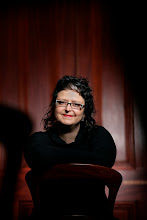I asked one of my favourite authors, Gerard Donovan about endings. I thought perhaps at this early stage it would help me to focus if I had some idea where this was going to end. It would help with the subtle metering out of things.
"I think an ending grows organically out of the story and should be a moment where the entire story sweeps in front of the reader's eyes again--not as a summary, but as a fresh review with the new impact that there is no more to come." This was a part of Mr Donovan's answer and it perfectly describes the ending of his novel Julius Winsome which ends so effortlessly that I had to back track and read the ending several times just to see how it worked.
The thing with an ending is that it often obliterates the rest of the novel. If for instance there was a slow patch earlier in the text, a perfect ending will make the reader forget about this. At the same time, a slow or dragging ending will ruin what may have been a wonderful piece of work. Take the ending of Ian McEwan's novella, On Chesil Beach with a last chapter that falls heavy and leaves you exhusted with it's dates and facts and clumsy tripping towards the finish line.
With my unpublished manuscript A Little Death (a thing that is still close to my heart after all these years), the ending came before the rest of it. I wrote the ending first and although it changed and shifted, I found that the core of it stayed intact. It made the writing easier. There was a place to aim for. With another manuscript "Paper Dolls, Holding Hands" I knew where it was going. I had the thing in my head. The ending turned out to be somewhere in the middle and perhaps this is why the book drifts off like a song that is faded out rather than coming to a complete stop. This works for the text in its own way but it is not ideal. With "His Father's Son" I didn't know the ending at all and I still think the ending of that manuscript is the wrong one. I want to go back to it and tear the second half off it and replace it with something more complete, but I still haven't found what this should be.
I just finished my memoir and when I came to a particular scene and wrote a particular line I knew that this was it. I had to stop there. I had to go back and work up to that scene because I had found my ending. It made emotional sense.
I have a sense of the ending for the Brain Book in me. I know how it will feel, happy and melancholy at the same time. A compromise that will be fine but not ecstatic. I know that he will not make a sudden and miraculous recovery like Jill Bolte Taylor who wrote "My Stroke of Insight." This ending is a slow acceptance. He has been pushing against something for a long time, holding on to his past before the stroke and the damage to his brain. At the end he simply has to stop pushing. Stop trying, and when he steps back there is a clear path and he realises that he can take it and that it won't be so bad.
This is not specific. I am not sure how this thing will play out, but I know the colour of the ending. I can see that picture by David Casper Friedrich with the man standing at the edge of a frozen lake looking into more ice, more sky and this is the way it ends. A stepping back and looking. The end of a struggle and the beginning of something new.
I am constantly sad. I know that this is because I have not developed traction. I feel sad and I feel lonely. I feel like I have let go of a friend. I have completed something which is like a separation. I am on the verge of tears most of the time. I am looking back towards the dark spaces that I have been struggling to avoid. I will have to fall before I can begin to climb again. I feel like I am shimmying across the cliff face, holding on by the tips of my fingers. I need to let go. I need to feel the pain of something over and the overwhelming exhaustion of looking up at something huge and unweildy that is about to begin.
Sunday, November 2, 2008
Subscribe to:
Post Comments (Atom)




No comments:
Post a Comment